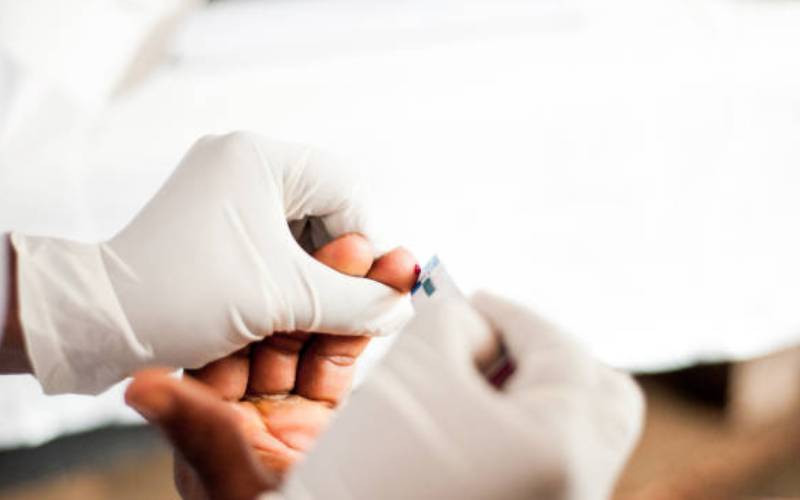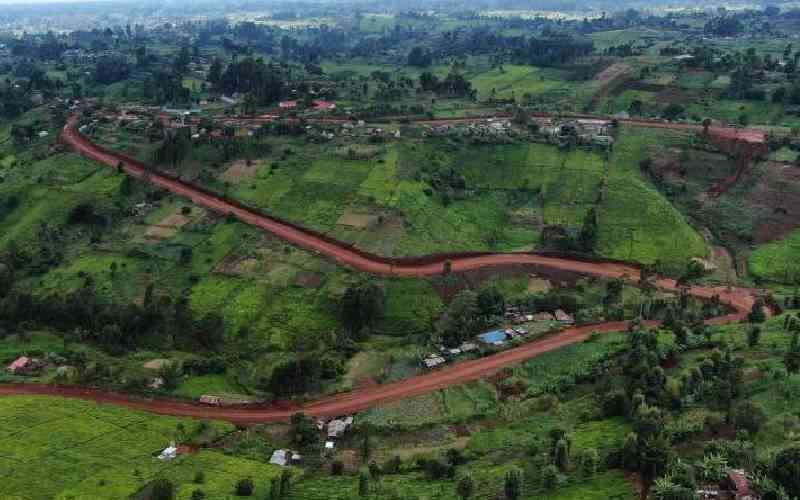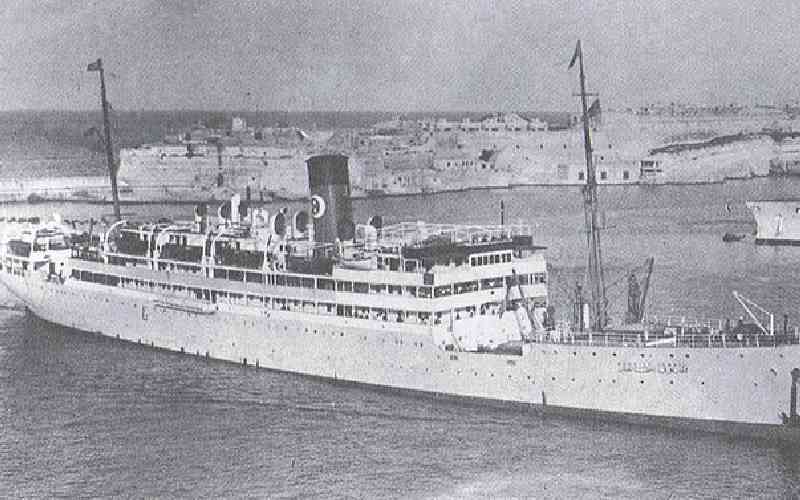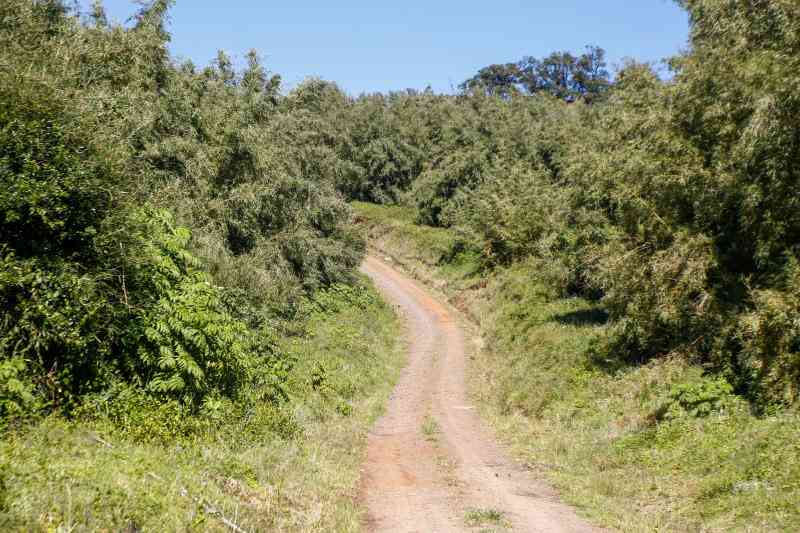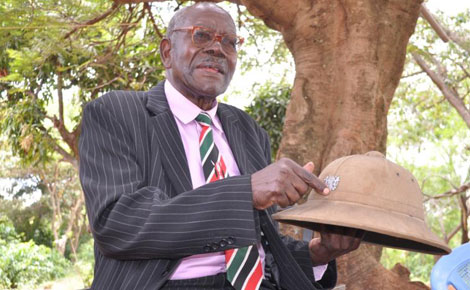 |
|
Freedom fighter Wanga Mahanga Oniang’. |
At the heart of Marenga Village in Port Victoria, Busia County, the dying memory of a less known freedom fighter fills the air.
Wanga Mahanga Oniang’, 85, is one of the only two surviving freedom fighters in the larger Western region.
Even though Oniang’ lost his sight after acute glaucoma infection in 2008, every June 1, October 20, and December 12, gives him the memory of his three years in detention during the fight for independence.
In April 1954, Oniang’ was arrested in Nairobi when the search for ‘hardcore’ Mau Mau fighters was heightened. He had been recruited into the movement two years earlier when he worked at a furniture shop belonging to a white man.
He attended a forum called by the would be Kenya’s first President Jomo Keyatta, in 1952 at Kaloleni where those engaged in the fight for independence declared they would make the last appeal for independence against the British.
After deliberations, Jomo Kenyatta, Achieng’ Oneko and other compatriots were selected to present the plight of Kenyans to colonialists.
“I can remember we stood firm and declared that that was the last time we would write to the British and if no action was taken we would resort to war in a bid to liberate our country,” recalled Oniang’.
However, the colonial masters ordered for the arrest of those they believed were responsible for incitement. Oniang’ participated in talks to push for the release of detainees but it never took long before he was noticed by the white man.
“We contributed money to buy drugs for the fighters who were in the forest, gave information on the movement of the colonial soldiers, and mobilised the people to shun colonial rule,” narrated the father of 13.
He was arrested on April 19, 1954 with other freedom fighters and taken to Embakasi amid tight security. They were taken to Akamba Screening Camp where they were questioned and tortured.
His dressing style and Christian name, Washington, made white soldiers not to forget his face. A name he later dropped after it attracted punishment at the detention camps as the white soldiers perceived him as tainting the name of a famous city, Washington DC.
On June 17, 1954, he was transferred to Kilimani Police Station together with six others among them Gregory Ouma, Dismas Ochieng’ and Zakaria Juma, where they spent a night and were flown to Malindi via Wilson Airport.
They landed at Mkoe Airstrip and were driven to Hindi Port in a prison van before they were ferried to Manda Special Detention Camp. Achieng’ Oneko and John Adala were in the same camp with 40 detainees who had been marked as hardcore criminals.
They stayed in the camp for a year and were relocated to Takwa Detention Camp after an outbreak of a disease. “I can’t remember the disease, but people were suffering from diarrhoea. At Takwa, we met Pio Gama Pinto and three Asians,” said Oniang’.
They stayed at the camp for six months before a similar outbreak came knocking. They were taken to Fort Jesus in Mombasa, for three days, before they were flown to Mageta Island in Lake Victoria.
Stay informed. Subscribe to our newsletter
The island camp was later closed and the detainees transferred to Kodiaga Prison in Kisumu, where they stayed for another two months before they were released. He participated in the birth of Kanu and contested for Bunyala Location representative (Busia County), a position he served for two terms before he was appointed a chief.
Every June 1, October 20 and December 12; Madaraka Day, Mashujaa Day and Jamuhuri Day respectively, Oniang’ wears his neck tie bearing Kenyan national flag colours and black suit with white strips.
Oniang’ now wants Budalang’i MP Ababu Namwamba, to move a motion to have streets in the market named after the 23 freedom fighters from the region.
 The Standard Group Plc is a
multi-media organization with investments in media platforms spanning newspaper
print operations, television, radio broadcasting, digital and online services. The
Standard Group is recognized as a leading multi-media house in Kenya with a key
influence in matters of national and international interest.
The Standard Group Plc is a
multi-media organization with investments in media platforms spanning newspaper
print operations, television, radio broadcasting, digital and online services. The
Standard Group is recognized as a leading multi-media house in Kenya with a key
influence in matters of national and international interest.
 The Standard Group Plc is a
multi-media organization with investments in media platforms spanning newspaper
print operations, television, radio broadcasting, digital and online services. The
Standard Group is recognized as a leading multi-media house in Kenya with a key
influence in matters of national and international interest.
The Standard Group Plc is a
multi-media organization with investments in media platforms spanning newspaper
print operations, television, radio broadcasting, digital and online services. The
Standard Group is recognized as a leading multi-media house in Kenya with a key
influence in matters of national and international interest.


